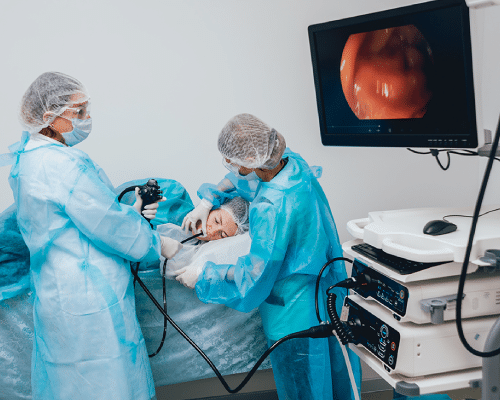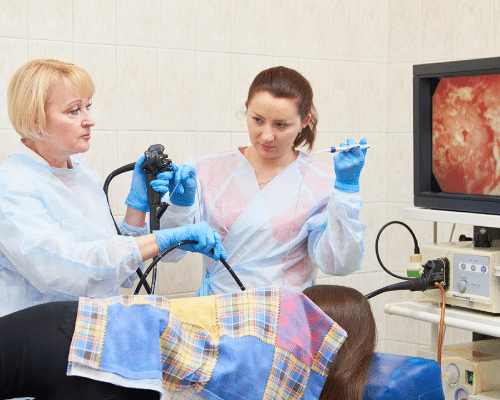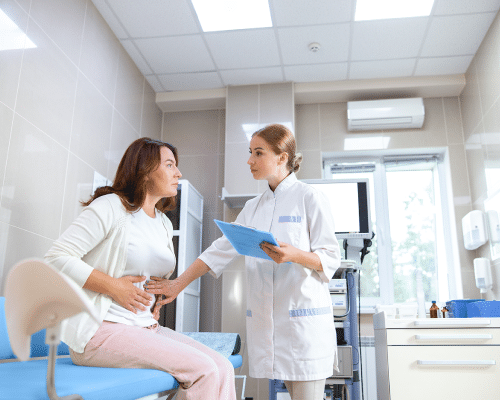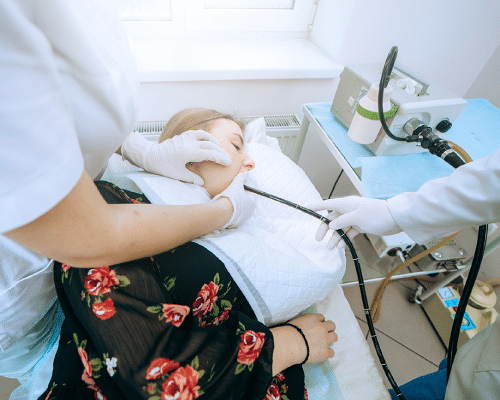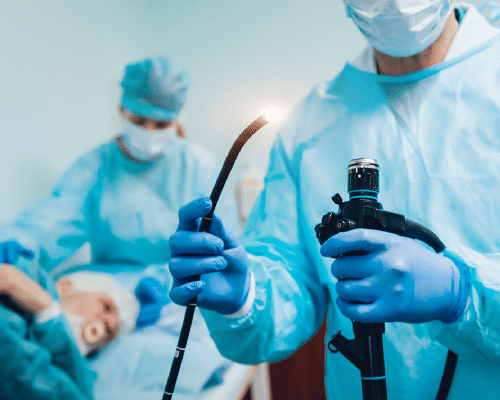COLON POLYPHS
Things You Need to Know About Polyp Removal Surgery
Dallas Area Office
12606 Greenville Ave
Dallas, TX 75243
Mon. - Fri. 8:00 – 5:00
Sat. - Sun. By Appointment
Southlake Office
470 E State Highway 114
Southlake, TX 76092
Mon. - Fri. 8:00 – 5:00
Sat. - Sun. By Appointment
Same Day Appointments
Tel: (817) 476-8933
Same-day consultations are available. Please call to confirm availability.
Things You Need to Know About Polyp Removal Surgery
Every medical procedure is, without a doubt, a frightful and stressful affair. The mere idea of it drains our mind and emotions and leaves us weak and exhausted even before it starts.
But part of that battle is knowing what to expect.
Here are some things that you should know about polyps and what you should expect when you need to have them removed.
What Are Polyps?
A polyp is a tissue growth from the surface of the body. These growths normally occur in either the colon or the rectum.
Most polyps are harmless and not exactly dangerous. But leaving them alone can put you at risk of that polyp turning cancerous. To be safe, it is almost always recommended that polyps be removed from your body, especially at early stages.
What Are Colon Polyps?
Colon polyps are simply clumps of tissue that form in the colon’s lining. These are the types of polyps responsible for creating or developing colon cancer. Similarly, these polyps are highly-recommended to be removed in order to prevent them from mutating into cancerous cells.
What Causes These to Appear?
As with any type of cancerous condition, family history and health plays a big role in developing polyps. As you age, the risks become greater.
Contrary to popular belief, there are no foods that cause polyps—or cancer, in general—to grow and thrive. Taking away the things medical science does not know yet, polyps will almost always be hereditary or based on the lifestyle of the person.
The worst part is that polyps often do not have any signs or symptoms, so to detect them early, be sure to get regular screenings for polyps, especially once you hit 50 years of age.
In some cases, however, colon polyp symptoms can appear. These are some things that you should tell your doctor about:
- Bleeding in your rectum
- Unusual diarrhea or constipation
- Unexplainable pain in your lower or bowel area
- Iron deficiency symptoms, such as shortness of breath or tiredness
- Stool color changes, such as red or black
What Is a Colonoscopy?
A colonoscopy is a medical procedure in which a medical professional inserts a tube into the rectum of the person. This tube comes equipped with a small video camera that will enable the doctor or nurse to see the inner linings of the rectum and the entire inside of the colon.
The tube is also equipped with some tools and apparatuses that can enable a trained professional to remove any small polyps or other abnormal tissue within view.
What Should I Expect During the Procedure?
The procedure is going to be very uncomfortable. The uneasiness might cause you to panic and move around, but do try your best to stop yourself from doing so.
Before the procedure, it would be best to practice some breathing methods that will help you keep calm and collected. The procedure will not last for more than an hour. But during the procedure, time may run a bit slowly, so make sure to breath as normally as you can. Try to sway your mind into thinking happier thoughts.
Before you know it, the procedure will be over, and you will be better off than you were several minutes ago. Relax. Everyone is here for you.
How can we help you?
Our Services
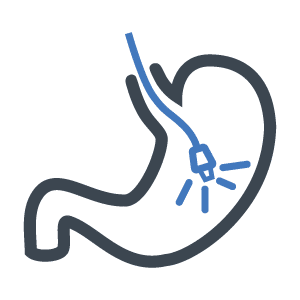
endoscopy
Endoscopic ultrasound is a test that lets your doctor look at the walls of your esophagus, stomach, and upper gastrointestinal tract. The test does not use X-rays or other radiation. The doctor uses a thin, lighted tube that bends.
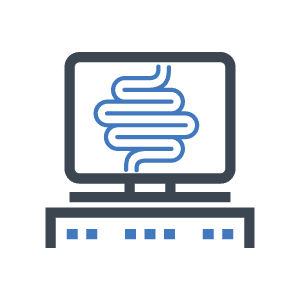
colonoscopy
Having a colonoscopy can help doctors pinpoint the possible causes behind rectal bleeding, abdominal pain, chronic diarrhea, chronic constipation, along with other intestinal problems.
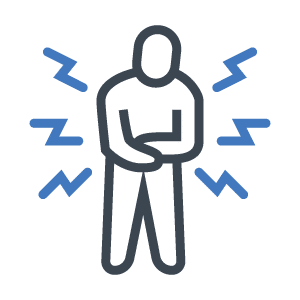
Colon Cancer Screening
If you’re over 50 or experience serious stomach pain, you should conduct regular screenings for colon cancer. Colorectal cancer is the second leading cause of death, accounting for 10 to 11% of cancer deaths overall.
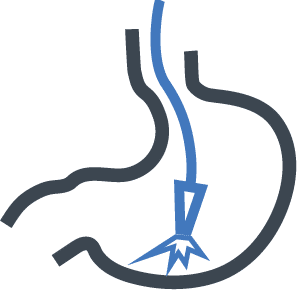
ULCER CAUTERIZATION
Gastric and duodenal ulcers are open wounds in your digestive tract and intestine tract. Ulcers can cause abdominal pain and can lead to internal hemorrhaging if not closed via non-surgical cauterization.
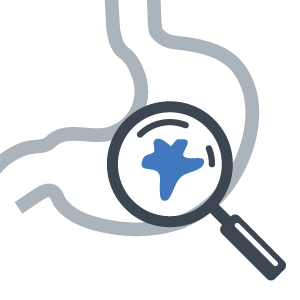
ULCER SCREENING
Having a colonoscopy can help doctors pinpoint the possible causes behind rectal bleeding, abdominal pain, chronic diarrhea, chronic constipation, along with other intestinal problems.
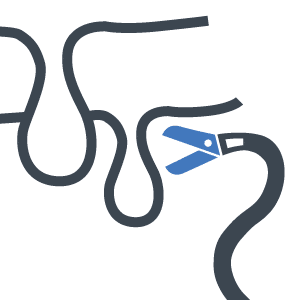
POLYP REMOVAL
If you’re over 50 or experience serious stomach pain, you should conduct regular screenings for colon cancer. Colorectal cancer is the second leading cause of death, accounting for 10 to 11% of cancer deaths overall.
What do you need to know?
Frequently Asked Questions
When to see a gastroenterologist?
Aside from being referred by your primary care doctor, you can also go directly to a gastroenterologist when you need a colon cancer screening, or you feel the following symptoms:
- Lethargy
- Loss of weight or appetite
- Vomiting
- Esophageal pain
- Excessive belching or gas
- Abdominal bloating or pain
- Acid Reflux Or Heartburn
- Dark urine
- Pale-colored stools
- Changes in bowel habits
- Diarrhea
- Hard-to-control bowel movement urges
- Leakage/underwear stains
- Rectal bleeding
What is an endoscopy?
This is a non-surgical procedure that uses an endoscope. The endoscope allows your gastroenterologist to see the insides of your digestive tract via a monitor.
That way, they can examine your digestive tract more accurately and efficiently.
What is a colonoscopy?
This is an examination to detect abnormalities or changes in your rectum or large intestines. It uses a colonoscope or a flexible tube that is inserted into your rectum. This allows your physician to see your colon’s insides because the colonoscope has a tiny video camera.
What is an EGD test?
To examine the lining of your duodenum (the upper part of your small intestine), stomach, or esophagus, you may need to undergo an EGD or esophagogastroduodenoscopy (also known as upper endoscopy).
This test also uses an endoscope that passes down your throat and along your esophagus.
That way, they can examine your digestive tract more accurately and efficiently.
How should I prepare for an upper endoscopy procedure?
You may need to do the following before an EGD:
- Set an appointment.
- Fast for about six hours before your appointment — no drinks or food.
- Get a driver to drive you home.
That way, they can examine your digestive tract more accurately and efficiently.
How long does an endoscopy procedure take?
We recommend you should be in our center for about two hours before an endoscopic procedure. For colonoscopy and EGD, you need to be sedated to make you comfortable and safe.
The test itself will only be about 30 minutes. However, you may need extra time for preoperative check-in, registration, and postoperative recovery.
Thus, the overall time you may spend in our center is about two hours.
That way, they can examine your digestive tract more accurately and efficiently.
Is my insurance acceptable?
As for Medicare, we currently do not accept it, but we accept all major insurance providers.
Before your test, we verify your benefits and eligibility. We will be happy to assist you, but you should also be aware of your insurance coverage.
Will I receive a bill after the procedure?
You may receive various statements for your bills. These include the following:
- Bill from the laboratory to analyze the specimens your physician obtain during your test
- Physician’s bill
- Bill from the center
Will I need a driver?
During an endoscopy or colonoscopy, you will receive a sedative or narcotic to help you relax during the test. Thus, after the test, you cannot drive as you may feel drowsy because of the sedative or narcotic.
Most medical facilities do not allow you to take the procedure unless you have a ride home ahead of time.
How should I fast?
Most recommend fasting the night before the procedure, while you must follow fasting six hours before the test.
Can I take regular medications before a test?
Before and after your test, we recommend you take your usual medications. However, for diabetic medications like pills or insulin, you should not take them. Other medications that are not allowed prevent clottings, such as Ticlid, Plavix, and Coumadin.
In these cases, we may have to review your medications before you undergo a test.
Is the procedure painful?
As mentioned, you will be sedated so the test will be comfortable. This means you should not feel anything during the procedure.
After the procedure, you are most likely to feel hungry, gassy, drowsy, and have a slightly dry mouth. However, these will gradually wear off.
Can I eat anything after the test?
Yes, but you should take it slow, and it is recommended to take a light meal only. We also recommend taking a nap until the effects of the sedation are completely worn off, as you will likely be drowsy for about four hours after the procedure.
Can I return to work after the test?
Yes, but it should be the following morning. You will be quite drowsy for at least four hours after the test.
How long until I see the results?
After your procedure, you can immediately know the results. Your physician will discuss the results with you and your family. We also provide a written explanation.
We will contact you once we have the results for the tissue samples because they will still undergo a lab analysis.
How long until I see the results?
After your procedure, you can immediately know the results. Your physician will discuss the results with you and your family. We also provide a written explanation.
We will contact you once we have the results for the tissue samples because they will still undergo a lab analysis.
How long until I see the results?
After your procedure, you can immediately know the results. Your physician will discuss the results with you and your family. We also provide a written explanation.
We will contact you once we have the results for the tissue samples because they will still undergo a lab analysis.
What should I do if I have other questions?
If you have more queries regarding endoscopic procedures, you can browse our page for articles related to your procedure.
You can also call us directly.
Contact us
Schedule A Consultation
We know you are busy. You can give us a call (817) 476-8933 or leave us your details and a patient care specialist we will contact you during our normal business hours.
DFW Digestive Care will never sell your contact information or send you unsolicited offers that do not pertain to our health services.
© 2021 DFW Digestive Care.

